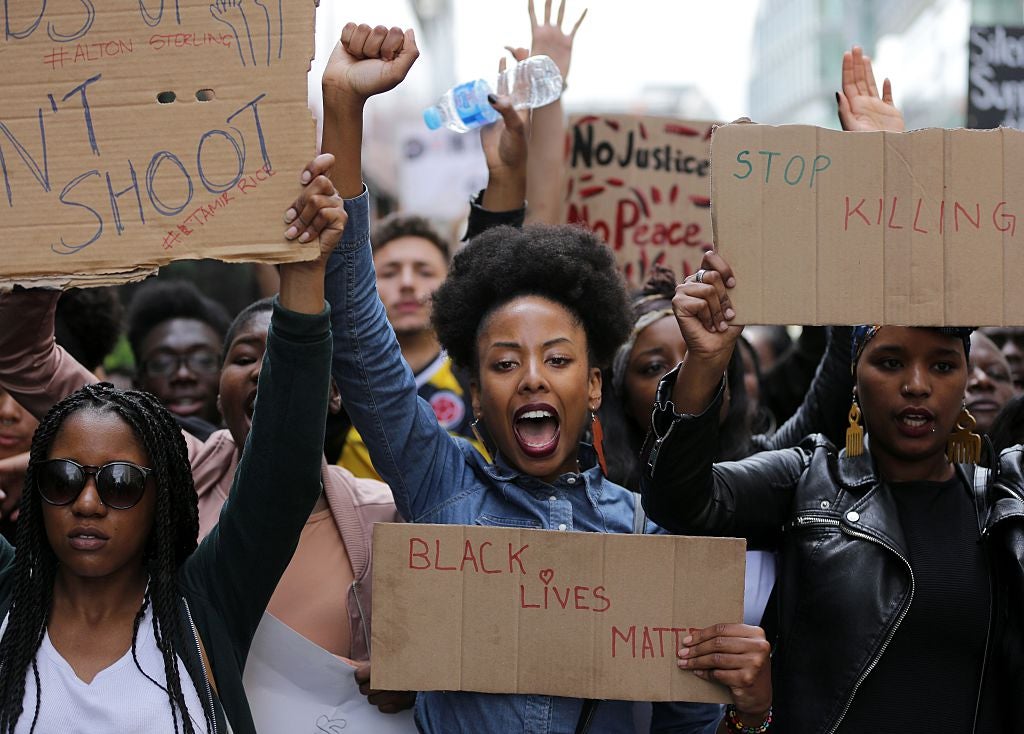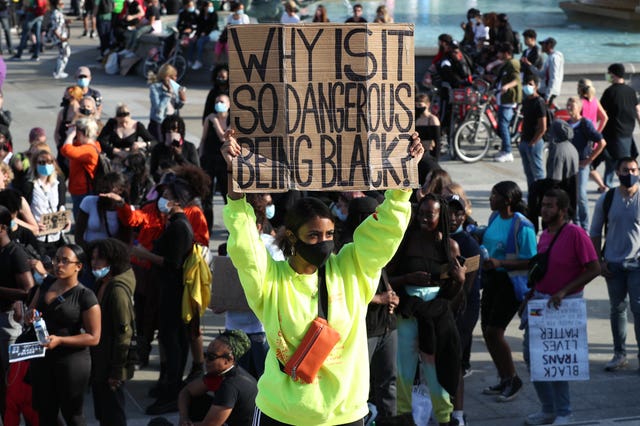‘Ditch Bame’ Race Commission proposal broadly welcomed, but campaigners wonder what’s next
‘Changing a term does not avoid the need to talk about the institutional and structural racism faced by different ethnic groups,’ Labour has warned

News that the public sector may scrap the generalised label which refers to Black, Asian and minority ethnic (Bame) people has been widely welcomed, albeit with a dose of scepticism.
Disuse of the term will be one of the key proposals in a highly anticipated report by the newly formed probe which was established to examine ethnic disparities, The Telegraph reported on Monday.
The newspaper cited a source saying the term had become “unhelpful and redundant”, with the blanket term potentially masking the lived experiences of individual groups.
This news has been welcomed by campaigners who have been lobbying for ethnic groups to be referenced in a much more nuanced, specific way.
Abolish BAME, a campaign geared towards ending the use of label in mainstream race discourse, said: “‘Bame’ is a problematic term that allows organisations to lump minority ethnic communities into one tidy group. Cultural heritage shouldn’t be treated like a box-ticking exercise, so we welcome the recommendation to 10 Downing Street by the racial disparities commission.”
Read more:
- Derek Chauvin trial – live: George Floyd murder case opens
- Who is Derek Chauvin, the officer charged with murdering George Floyd?
- Watch live as trial of George Floyd’s alleged killer Derek Chauvin begins
- What to expect during the trial of Derek Chauvin
- Derek Chauvin: How mostly white jury could affect trial
It said while the move will not “solve racism”, it has the potential to improve discussions on racial inequality so that they’re more targeted at key minority ethnic communities.
“This is long overdue. We shouldn’t stop working collectively to address oppressive structures but we can’t continue with Bame. The homogenisation of all non-white people IS racism. The term is grossly misused and hides disparities. Good riddance,” added Dr Annabel Sowemimo, who frequently writes about decolonising healthcare.
There has also been a degree of concern about what other measures will be implemented in the government’s bid to tackle racism, with some speculating what Bame will be replaced with.
The director of race equality think tank Runnymede, Dr Halima Begum, said: “Worrying if true. Am hearing rumours the headline recommendation from UK government’s pending Racial Disparities Commission report is that the term ‘Bame’ is no longer used. Seriously? Is that the extent of this government’s awareness or intent to resolve structural racism in our country?”
One person said: “You’ll see – they’ll replace it with something more stupid” while David Lammy MP, shadow justice secretary, said: “Easy for the government to catch up with the rest of us on scrapping the term Bame. But what are they going to replace it with exactly?”
Prominent solicitor Nazir Azfal tweeted: “Never liked term ‘Bame’ but simply stopping its use doesn’t deal with specific issues encountered by minorities Govt that focuses on symbols & not substance If you’re black you’re MORE likely to be stopped, arrested, charged & convicted on SAME evidence.”
Marsha de Cordova, the shadow equalities minister, told The Independent that Bame is an unhelpful acronym and Labour has been calling for use of the term to be phased out.
“But changing a term does not avoid the need to talk about the institutional and structural racism faced by different ethnic groups, which the Conservatives have denied and dismissed throughout the pandemic,” she added.
“We need to see the Commission on Race and Ethnic Disparities acknowledging and addressing structural racism across government in health, education and criminal justice. We need a race equality strategy with clear ministerial responsibility and a Race Equality Act to undo centuries of racial discrimination.”
British Future researched the term Bame in discussion groups with mixed-ethnicity groups around the country, alongside nationally representative attitudes research, including a poll of 2,000 ethnic minority respondents and 1,500 white British respondents, carried out by Number Cruncher Politics in January and February 2021.
Its findings were considered by the think tank Race Commission, which found that four out of ten people in the general population think they are confident about what the term Bame means, while one in three people say they are unfamiliar with the term.
The study also revealed that most Black, Asian and minority ethnic Britons slightly prefer “ethnic minority” as an umbrella term, with two-thirds (68 per cent) saying they either support or accept the term, and 13 per cent were against it.
The American term “people of colour” was less popular, with 50 per cent saying it was acceptable, while “non-white” was the least popular of the four aggregate terms polled: this met with opposition from almost a third (30 per cent) of ethnic minority respondents, with less than half (46 per cent) finding it acceptable.

Most ethnic minority Britons (54 per cent) felt that compound identities – like “Black British” or “British Asian” – can help to make national identity feel more inclusive of people from different backgrounds.
Prime minister Boris Johnson announced the Comission on Race and Ethnic Disparities in June in response to the resurgence of Black Lives Matter protests over the death while in police custody of African American George Floyd.
“The commission has taken evidence from across the UK, examined the data to create a rigorous fact-based report on what is often a highly charged debate. It was important for commissioners to produce findings based on data and evidence to try and take down the temperature on this issue and have a debate based on the facts, not driven by ideology,” a source familiar with the report told The Telegraph.
The independent body is headed up by by former charity executive Tony Sewell, who was once a colleague of the PM during his time as London mayor and previously described evidence of institutional racism in the UK as “flimsy”.
Geared at assessing areas including criminal justice, health and education, the commission is supported by the Race Disparity Unit in the Cabinet Office.
At the time of the its formation, Mr Johnson said he wanted it to help “change the narrative,” to highlight positive stories from within marginalised groups and to “stop a sense of victimisation and discrimination”.
Join our commenting forum
Join thought-provoking conversations, follow other Independent readers and see their replies
Comments
Bookmark popover
Removed from bookmarks